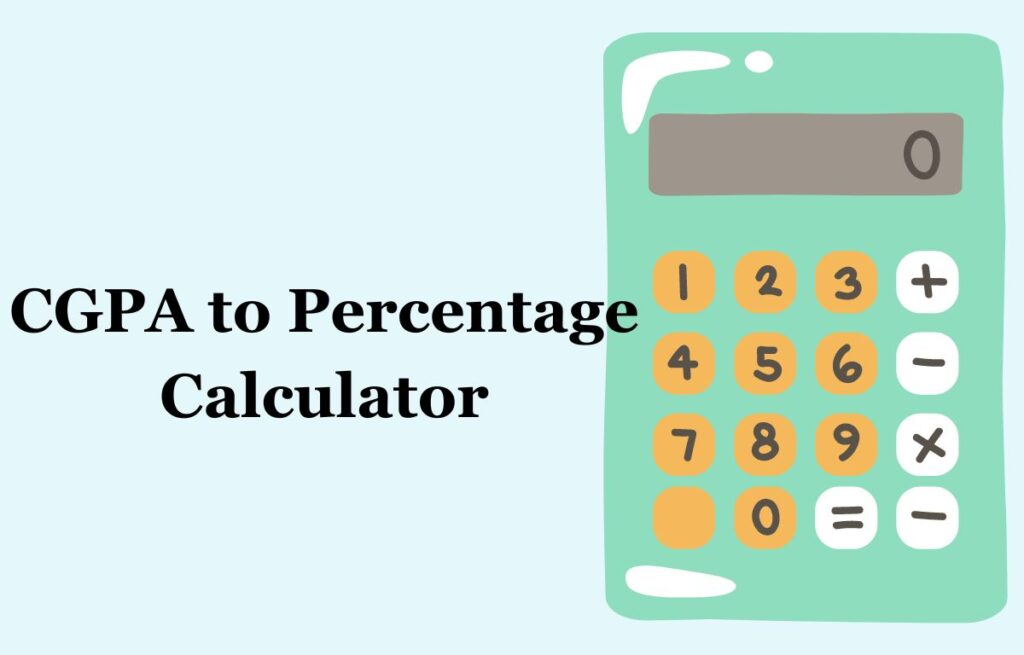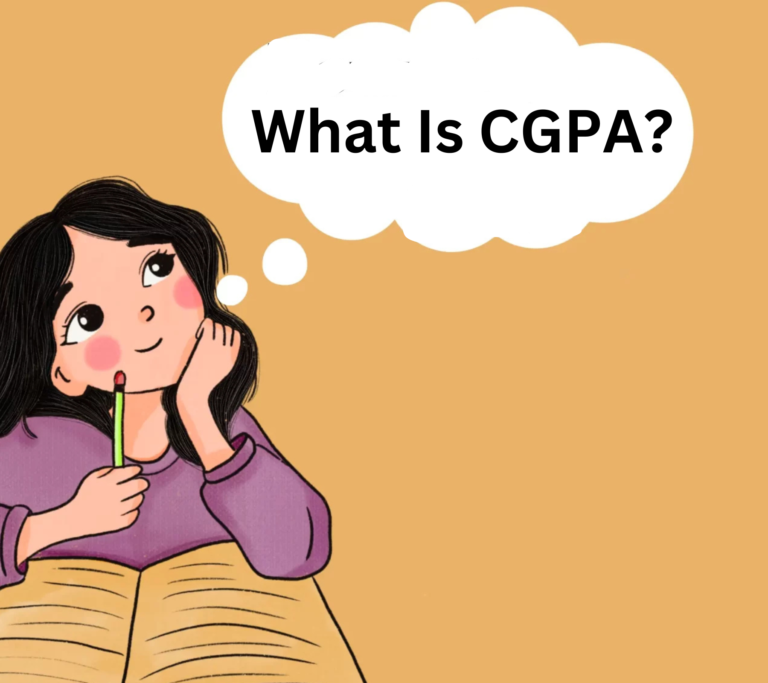Importance of CGPA And Percentage In Our Career
CGPA and percentage play an important role in today’s world when it comes to finding a job; thus, they should be considered essential factors. Each of these metrics is important in your academic endeavors and working career.
Here, we try to explain the importance of CGPA and Percentage in our career and how they affect your selection of a profession.
What is CGPA and Percentage?
CGPA (Cumulative Grade Point Average) is a metric used to assess academic performance over a period, such as a semester or academic year. It is typically measured on a scale from 0 to 10, where each grade is assigned a specific number of grade points.
Your CGPA is calculated by averaging these grade points, considering the credit hours of each course. This cumulative measure helps understand overall performance across all subjects.
Percentage, on the other hand, is a direct reflection of your performance in individual subjects. It is calculated based on the marks obtained from a total possible score, usually represented as a percentage out of 100.
Unlike CGPA, which provides a cumulative average, percentage scores offer a straightforward view of your performance in each subject or exam.
Both CGPA and percentage are important for evaluating academic success but serve different purposes. CGPA provides an overall academic performance summary, while percentage scores indicate specific subject performance.

The Importance of CGPA and Percentage
CGPA and percentage are crucial in evaluating your academic performance. They serve as benchmarks for your understanding of subjects and ability to handle academic challenges. These metrics are not just numbers; they can shape your academic and professional future.
How CGPA Impacts Your Career?
- Admission to Higher Studies: Your CGPA is a significant factor in the admission process for most institutions. Many universities set a minimum CGPA requirement for masters, with some requiring a CGPA of 7.0 or higher. A higher CGPA can also enhance your chances of securing admission to competitive programs and scholarships.
- Job Applications: The CGPA is very important as when you apply for a job with prospective employers, they base themselves on the overall academic performance.
- While an emphasis on CGPA might be less or more depending on the industry and the position, it is still beneficial to have a good CGPA. How much CGPA is good may vary from one industry to another or from one job application to another, but anything above three is considered good. 0 is considered favorable.
- Career Growth: A better CGPA is not just a reflection of academic performance but also a potential catalyst for career advancement. Employers often view a high CGPA as a sign of hard work, which can be advantageous when seeking promotions or new opportunities.
How Percentage Affects Your Career?
- Academic Performance: Your percentage scores are a key indicator of your performance in individual subjects and overall academic achievements. High percentages often reflect a deep understanding of the material and a strong academic ability.
- This can be especially beneficial when applying for advanced courses or specialized programs, where admission criteria might include a minimum percentage. Schools and universities often use percentage scores to gauge whether a student is ready for more challenging coursework or higher levels of study.
- Job Requirements: In the competitive job market, high percentage scores can give you an edge. Some employers have specific percentage requirements for academic qualifications, and a high percentage can significantly enhance your resume.
- It signals to potential employers that you have excelled academically, which can be a key factor in their hiring decision. For roles that demand a high level of technical knowledge or specialized skills, employers often look for candidates with higher percentages to ensure they have a solid foundation in their field.
- Professional Certifications: Many professional certifications and licenses have prerequisites, including achieving a certain percentage in relevant courses or exams. A high percentage can be crucial for meeting these prerequisites, enabling you to pursue additional qualifications and career advancement. For instance, certifications in fields like finance, engineering, or healthcare often have minimum percentage requirements for eligibility. By achieving high percentages, you fulfill these requirements and demonstrate your commitment and expertise in your chosen profession.
Minimum CGPA Required for Different Opportunities
- For Masters Programs:
- The minimum CGPA expected for admission to masters programs typically falls between 2.5 and 3.0. However, competitive programs may have higher CGPA requirements. To ensure you have the most accurate information, it’s crucial to always consult the detailed program requirements.
- For Jobs:
- The minimum CGPA required to get a job depends on the country in which the scholar is willing to get a job and the field he wants to enter.
- For instance, in Pakistan, it is pretty normal for employers to seek an applicant’s CGPA of not below 2. 5 to 3. 0. But this can vary depending on the position of employment and the necessary number of years in the employed organization.
How to Improve CGPA and Percentage?
- Set Clear Goals: Break down the CGPA or percentage requirement into manageable goals. This time-tested technique provides a clear roadmap for your academic journey, making your goals more achievable and preventing them from slipping out of focus.
- Stay Organized: Make a calendar of all the due dates, activities, and tests. Retain planners or use your smart devices to help you fit those tasks into your to-do list in the best way possible. You will avoid a situation where you cram and push through your work at the last minute, which may lead to failure to meet the deadline.
- Seek Help When Needed: If you’re struggling with any subjects, don’t hesitate to seek assistance. Whether it’s from professors, tutors, or peers, getting help early can prevent you from falling behind and ensure a thorough understanding of the material.
- Practice Regularly: Therefore, ensuring that one devotes a lot of time to study and practice to gain more understanding and better mastery of the content is good. The practice tests and the regular revision help increase your performance and improve your grades.
- Applying these strategies can improve your performance, increase the CGPA and percentage you want, and attain your educational and career dreams.
The Final Verdict:
Understanding the importance of CGPA and percentage in our career is crucial for students. These two metrics hold significant weight in academic and professional settings. Knowing the distinctiveness between them and their implications for your future can guide you in making informed decisions about your academic and professional journey.
For students preparing for college or university or those seeking competitive job opportunities, a high CGPA is not just a number but a testament to your academic excellence. It’s crucial to identify the minimum requirements for your desired programs or jobs and strive to meet or exceed them.
What is important, CGPA or percentage?
Both CGPA and percentage are important, but their relevance can vary depending on the context. Educational institutions often use CGPA to assess overall academic performance, while the percentage is a more direct measure of individual subject scores. For admissions and job applications, the importance of each may vary.
What is the minimum CGPA required for a job in Pakistan?
In Pakistan, many employers look for a minimum CGPA of 2.5 to 3.0. However, this can differ based on the industry and specific job requirements.
Is it important to write a CGPA in a resume?
Including your CGPA in your resume can be important, especially if it is strong or relevant to the job you are applying for. It provides potential employers with a quick snapshot of your academic performance.
However, if you have significant work experience or other achievements, the emphasis on CGPA may be less critical.




